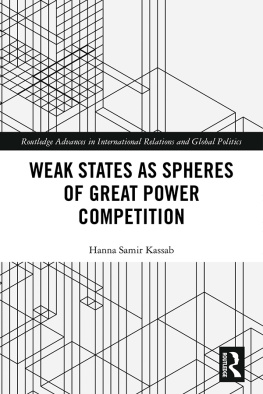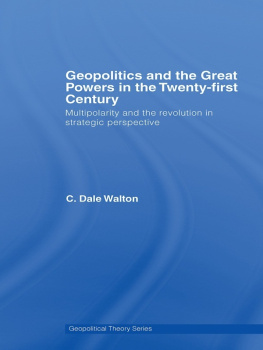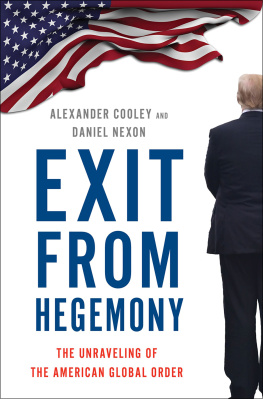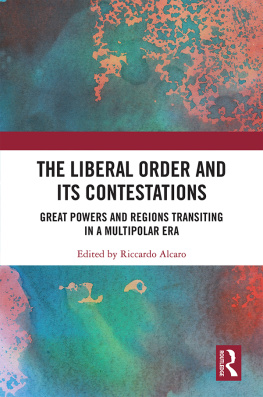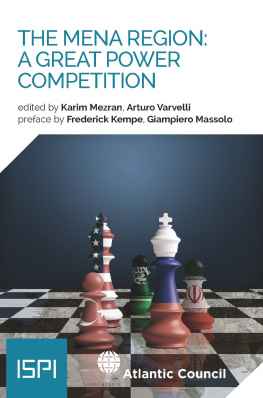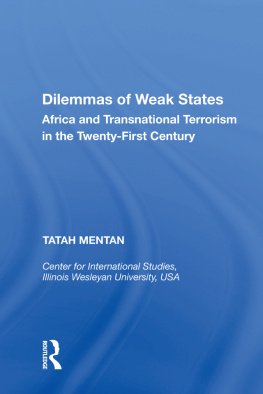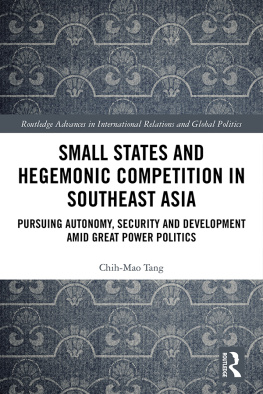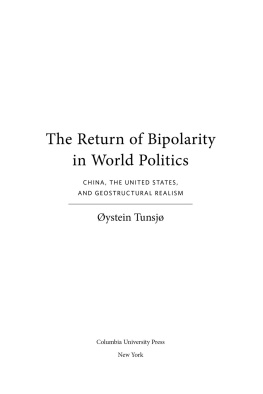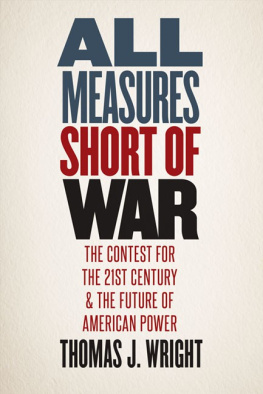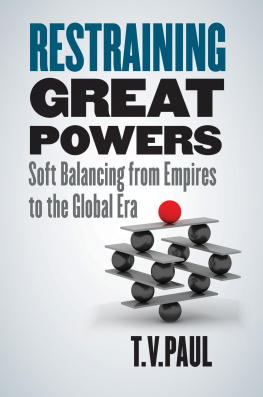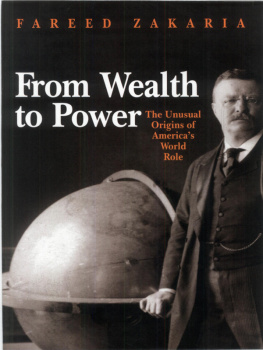Weak States as Spheres of Great Power Competition
This book explains the development of the international systems present-day balance of power by exploring three central questions: (1) Under what conditions has the international system order evolved from a unipolar system to the current multipolar system? (2) What are its major states? (3) How do weak powers affect great power competition?
It puts forward the following hypotheses: (1) if China and Russia are expanding their military, political, and economic influence into weaker states globally, then the unipolar American order is unraveling; and (2) if the international system is multipolar, then great power balancing may enhance international security. However, balancing may be made difficult because of weak state aid-seeking behavior. When weak states engage competing great powers, they become spheres of competition. This book delves into these states. Whether in Africa, Latin America, the Middle East, Central Asia, East Asia, or Eastern Europe, great powers hope to establish some control over weaker units for security, economic, and at times, prestige purposes.
This book will be of interest to students and scholars of political science and IR, security studies, and IPE, as well as members of the think tank community and policy analysts.
Hanna Samir Kassab is a Teaching Assistant Professor in the Political Science Department at East Carolina University, USA.
Routledge Advances in International Relations and Global Politics
South Africa and the UN Human Rights Council
The Fate of the Liberal Order
Eduard Jordaan
Economic Sanctions in International Law and Practice
Edited by Masahiko Asada
Iran in the International System
Between Great Powers and Great Ideas
Edited by Heinz Grtner and Mitra Strohmaier
International Relations as Politics Among People
Hannes Hansen-Magnusson
Mexicos Drug War and Criminal Networks
The Dark Side of Social Media
Nilda M. Garcia
Transnational Labour Migration, Livelihoods and Agrarian Change in Nepal
The Remittance Village
Ramesh Sunam
A Middle East Free of Weapons of Mass Destruction
A New Approach to Nonproliferation
Seyed Hossein Mousavian and Emad Kiyaei
Weak States as Spheres of Great Power Competition
Hanna Samir Kassab
For information about the series: www.routledge.com/Routledge-Advances-in-International-Relations-and-Global-Politics/book-series/IRGP
Weak States as Spheres of Great Power Competition
Hanna Samir Kassab
First published 2020
by Routledge
2 Park Square, Milton Park, Abingdon, Oxon OX14 4RN
and by Routledge
52 Vanderbilt Avenue, New York, NY 10017
Routledge is an imprint of the Taylor & Francis Group, an informa business
2020 Hanna Samir Kassab
The right of Hanna Samir Kassab to be identified as author of this work has been asserted by him in accordance with sections 77 and 78 of the Copyright, Designs and Patents Act 1988.
All rights reserved. No part of this book may be reprinted or reproduced or utilized in any form or by any electronic, mechanical, or other means, now known or hereafter invented, including photocopying and recording, or in any information storage or retrieval system, without permission in writing from the publishers.
Trademark notice: Product or corporate names may be trademarks or registered trademarks, and are used only for identification and explanation without intent to infringe.
British Library Cataloguing in Publication Data
A catalogue record for this book is available from the British Library
Library of Congress Cataloging in Publication Data
A catalog record has been requested for this book
ISBN: 978-0-367-50582-0 (hbk)
ISBN: 978-1-003-05041-4 (ebk)
Typeset in Times New Roman
by Wearset Ltd, Boldon, Tyne and Wear
To Jonathan D. Rosen,
An incredible friend and colleague.
Contents
The author would like to thank the following people. First, to my family: my father Samire, mother Hanane, sister Lea, and brother Elias. Thank you for all your support. I would not be in my current position without all of you.
I would also like to thank Roger Kanet for his continued support. It was his advice that influenced the structure of this book. Without his support, this book would not exist in its current form and I am forever grateful to him.
Many thanks to Max Lund and Aaron Rochow for editing! Wonderful job! Its always a pleasure working with both of you!
Sincere thanks to Jonathan D. Rosen. I dedicate this book to you. We started out in the graduate program together in 2010 and worked together on our projects. Of our cohort, you finished first taking two and a half years to complete the program. Not an easy feat! I hope to continue researching and writing with you until one of us kicks the bucket. Ill always have your back!
This book analyzes the evolution of the international system from American unipolarity to the beginning of multipolarity with the inclusion of great power competition for control over weak states. The aim of this book is to document present-day international order. Three central questions follow: (1) Under what conditions has the international system order evolved from a unipolar system to the current multipolar system? (2) Who are the major states? (3) How do weak powers affect great power competition? This book puts forward the following hypotheses: (1) if China and Russia are expanding their military, political, and economic influence into weaker states globally, then the unipolar American order is unraveling; and (2) if the international system is multipolar, then great power balancing may enhance international security. However, balancing will be made difficult because of weak state aid-seeking behavior. When weak states engage competing great powers, they become spheres of competition for these great powers. Weak state behavior may increase global influence for challenger states, and thus alter the structure of the international system. This book then discusses shifts in the international order, the rise of new powers, and their competition for influence for smaller/weaker countries.
Under conditions of survival-seeking behavior, balance of power alignment will maintain state survival within the changing global order. Great powers will guard their autonomy and mutual respect for declared spheres of influence, but this will be made difficult because of weak state behavior. This book argues that the international system is transforming, from unipolar to multipolar. China is setting the foundations to replace the United States as world hegemon by developing relationships with weaker states. Russia does not present such a systemic challenge, but its sizable military presents a threat to the European status quo. Ukraine, the Baltics, and other weaker units may experience increased Russian pressure. Although these changes are nothing to fear, states must prepare for them. Changes will require states to respect certain spheres of influence and to practice disciplined restraint. However, the presence of a great many weak states will significantly complicate matters. Weak states, as they seek aid, invite great powers into their autonomous areas. This competition now forms the international system in transition as global dominance is at stake.

